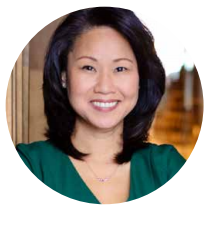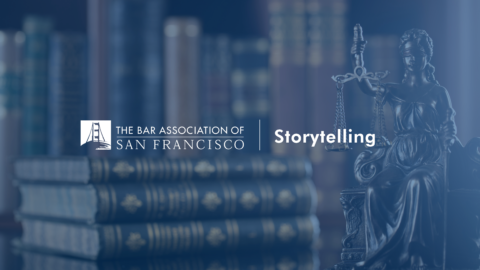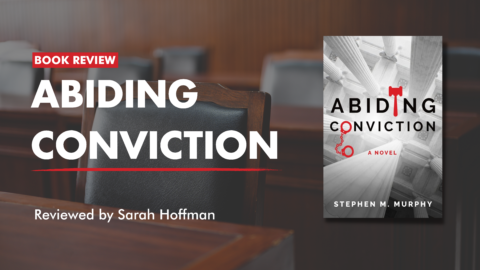The following are excerpts from Doris Cheng’s remarks at her December 18, 2018 installation as the 2019 president of the Bar Association of San Francisco.
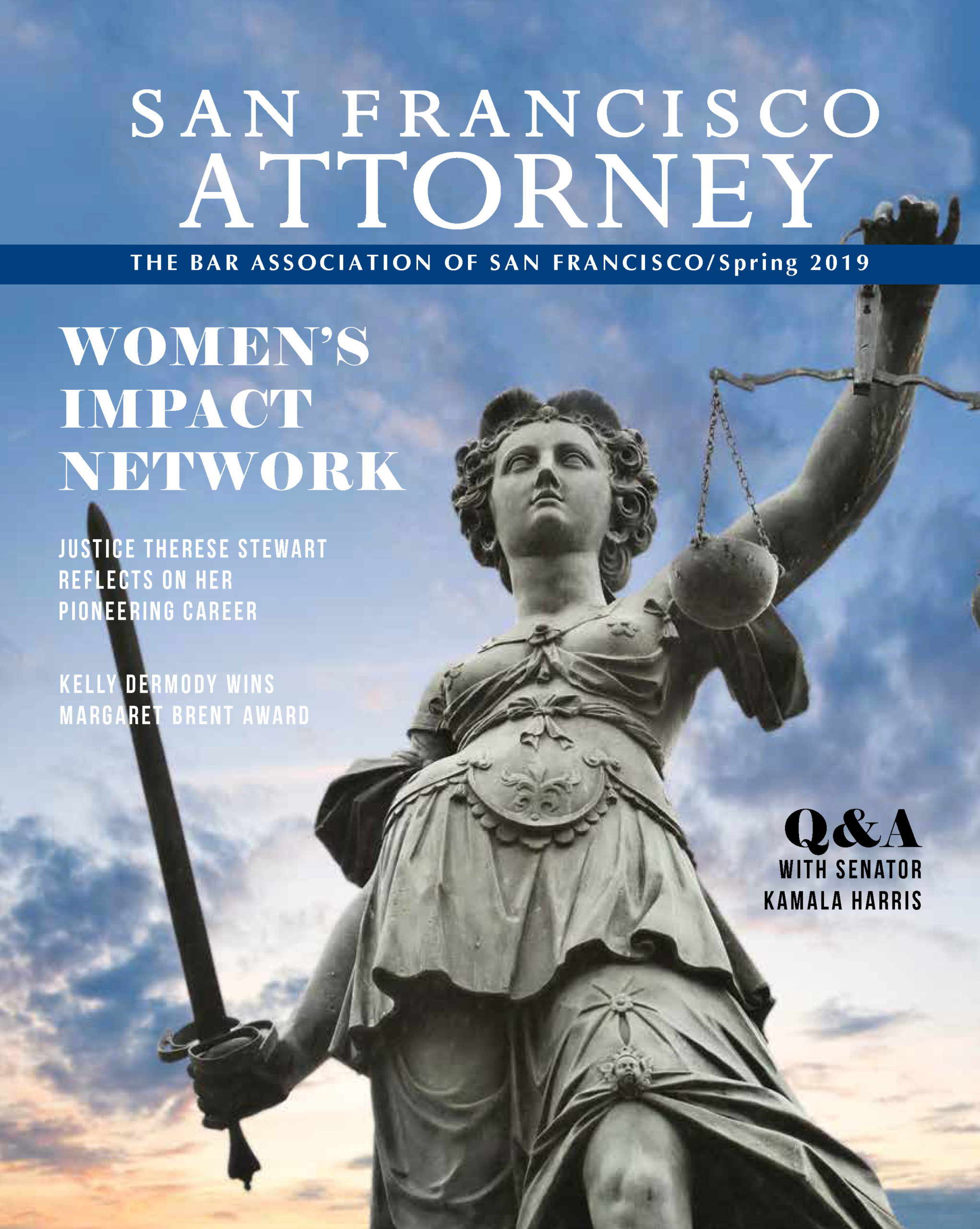
Spanish philosopher George Santayana said, “Those who cannot remember the past are condemned to repeat it.” Santayana was talking about the importance of our conscious retention of history. Change is not progress unless we can retain it. If we cannot remember where we have been or how we arrived here, we have no direction for possible improvement. The drive for progress begins by understanding the past.
It bears remembering the roots of progress within the Bar Association of San Francisco (BASF)—over a hundred years of pro bono service to our community, and in the last sixteen years, a focus on advancing women in the law.
- BASF was founded in 1872.
- In 1916, BASF created the San Francisco Legal Aid Society. More than a hundred years later, the organization now known as Legal Aid at Work continues to serve thousands of low-income families, enforcing and strengthening their workplace rights.
- In 1977, BASF, with Jim Brosnahan as president, started the Volunteer Legal Services Program, responding to the growing unmet need to provide legal services for those who could not afford legal representation. Four decades later, the program which has grown into the Justice & Diversity Center (JDC), continues to deliver pro bono legal representation in family law, domestic violence cases, landlord-tenant, consumer, and collection defense, to name just a few of its focus areas.
- In 1988, the creation of the Homeless Advocacy Program was a direct response to San Francisco’s homelessness population.
- In 1997, then-BASF President Jeffrey S. Ross collaborated with the San Francisco Unified School District to start the Law Academy, which brought paid internships and mentoring to underprivileged and ethnically diverse youth in public high schools.
- In 2002, Angela Bradstreet launched the No Glass Ceiling Initiative during her tenure as BASF president, promoting the advancement of women and minorities in private law firms. The No Glass Ceiling Initiative garnered wide support from major law firms across the country.
- The No Glass Ceiling Initiative resurged with new goals in 2010, asking law firms and corporate legal departments to strive for 30 percent women in management positions by 2015.
- Last year, 2018 BASF President Malcolm A. Heinicke reinvigorated the Women’s Committee in support of No Glass Ceiling 2.0.
These milestones are among the many reasons we are all proud to be members and volunteers of BASF and JDC. This rich history resonates with my personal development and my own hopes for progress.
I am a first-generation native San Franciscan, a graduate of the public school system, having attended Argonne Elementary School, Herbert Hoover Middle School, and Lowell High School.
As children of Chinese immigrants who fled the Japanese occupation and then Communism, my parents strived to give us better opportunities in the land of plenty. We lived right below Laurel Village in an ethnically diverse neighborhood with Caucasian, African, Chinese, and Vietnamese Americans. We learned how to integrate exactly as is naturally occurring in a melting pot. We learned that kindness begets kindness, and if you helped one of your neighbors, they helped you back. We understood the importance of having a community.
Because the women’s movement was a steady presence during my childhood—I saw posters for equal rights and the National Organization of Women throughout my neighborhood as a child—I benefited from the progress. It was imprinted in my subconscious that I could do as much or more than any boy. I had certainly seen my mother do it, and so I don’t think I gave much thought to a girl’s place, and certainly not a woman’s place, until a certain track meet in middle school.
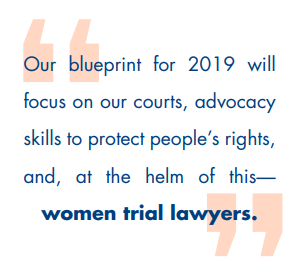 In sixth grade, I competed in the boys’ division for the 100-yard dash and the 4 x 1 relay. No one seemed to have a problem with that until we had a track meet against James Denman Middle School. As I dug my cleats into the starting blocks and set my fingers into the dirt, a boy from Denman looked over at me, jumped out of his blocks as if electrocuted, and accusingly exclaimed, “She’s a girl! She’s a girl! If I get beat by a girl, I’m quitting!” I was a little startled. And for an anxious moment, I felt as if I didn’t belong there. At the end of that race, however, I did wonder if I was ever going to see that boy again.
In sixth grade, I competed in the boys’ division for the 100-yard dash and the 4 x 1 relay. No one seemed to have a problem with that until we had a track meet against James Denman Middle School. As I dug my cleats into the starting blocks and set my fingers into the dirt, a boy from Denman looked over at me, jumped out of his blocks as if electrocuted, and accusingly exclaimed, “She’s a girl! She’s a girl! If I get beat by a girl, I’m quitting!” I was a little startled. And for an anxious moment, I felt as if I didn’t belong there. At the end of that race, however, I did wonder if I was ever going to see that boy again.
Sometime during that spring season, I recognized a valuable truth. The field was level, so long as no one held me back, and the field was accessible, so long as my coaches and my teammates supported my presence there. It is a timeless truth.
In my career as a plaintiff’s lawyer, representing individuals who have suffered physical and emotional loss, it has been my blessed fortune to have partners and peers who always supported me on the litigation battlefield. The invisible bands of support that connected me to a long tradition of trial warriors empowered me.
Those bands of support held me up when my male opposing counsel refused to address me by name and called me “Miss” as if to reduce me to a cyborg. “Miss here is making an objection.” And better yet, “I’m not talking to Miss.” As Santayana observed, change is not progress if there is no retention; if our current experience feels like 1973 when “Notorious RBG” argued before the Supreme Court, “I ask no favor for my sex. All I ask of my brethren is that they take their feet off our necks.”
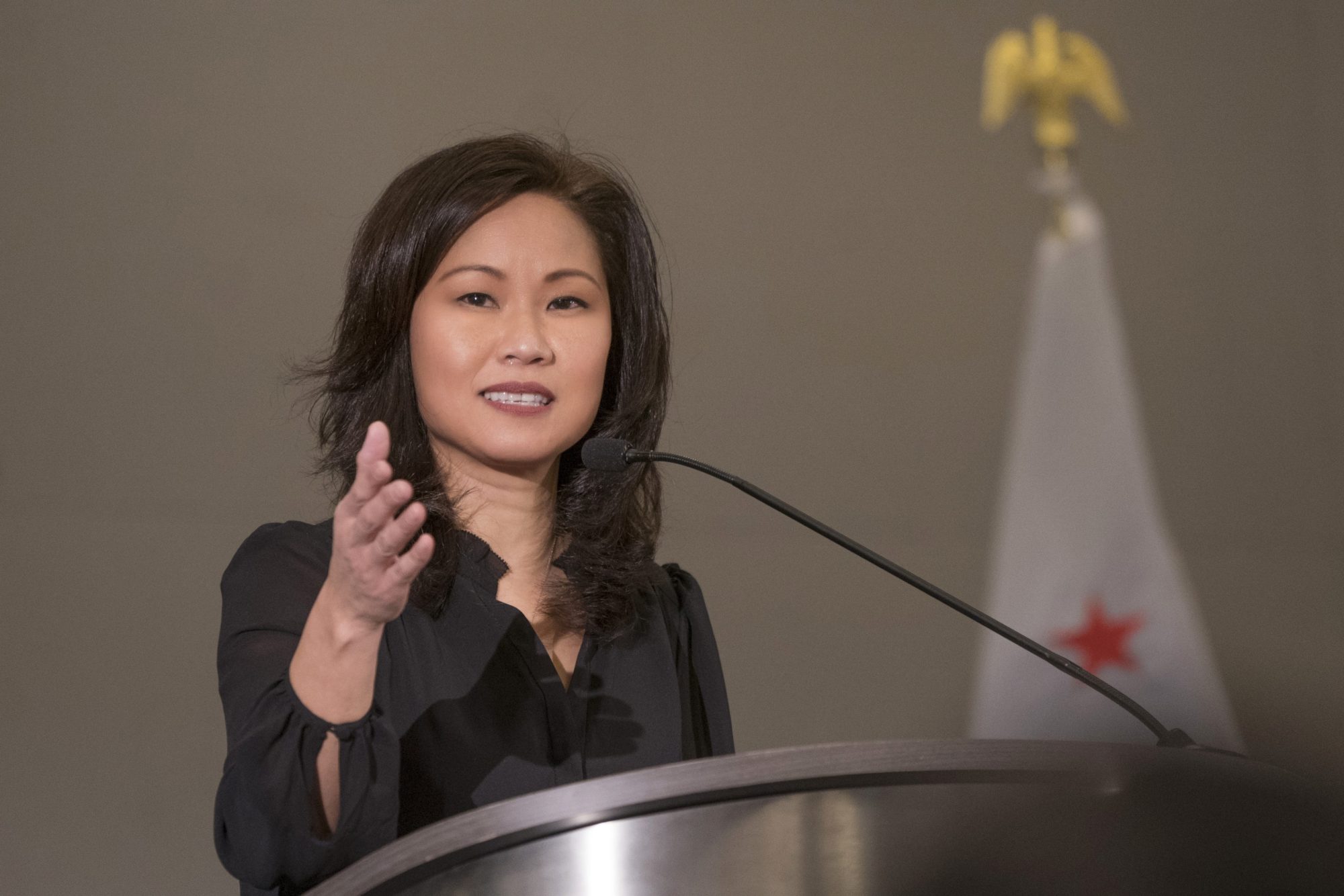
I was in Arkansas a couple of years ago, prosecuting a civil rights case against two Little Rock police officers who shot and killed a 67-year-old black man in his own home. I walked through the doors of the federal courthouse and was immediately interrogated by the court security officer, who asked why I was there. “Who are you here to see?” “Do you have an appointment?” “Is the judge is expecting you?” “Are you a lawyer?” And finally, after I passed through the metal detector, “You’re not from around here, are you?” I could not tell whether I was singled out because I was Californian, Asian, female, a combination of all of the above, or what. But no member of the public citizenry should feel intimidated in a public courthouse. We must have the courage and wisdom to challenge such attitudes of exclusion when confronted by them.
I have been fortunate to have mentors, partners, and peers who have not held me back in my arena and who have supported me being there. In our trial lawyer firm, we encourage each other at every righteous opportunity to stand up and say, “Good morning, members of the jury” and “May it please the court.” That’s because, as Thomas Jefferson said, the trial by jury is “the only anchor ever yet imagined by man, by which a government can be held to the principles of its constitution.” The jury trial is a vital part of the system of checks and balances and prevents tyranny. The greatest danger to our democracy is the absence of participation in the jury system, whether by voluntary withdrawal or exclusion. And so let me again say thanks to my family at home and my family at work for these blessings. We believe in the right of every competent lawyer, whether man or woman, whether black, white, Asian or Muslim, to fight for our clients in the courtroom.
We know that my good fortune is not commonplace because when I attend trial lawyer conferences, I am frequently asked, “Where are the women trial lawyers?” After having been asked that same question so many times, it seems obvious that our profession needs to grow them. The need for diverse legal representation is even more important in a climate where diversity, race, religion, gender, and sexual orientation are at the heart of controversies. We need greater diversity in the courtroom where women and people of color will not be held back, and we need partners and peers to promote their presence in that arena. Otherwise, we will never learn from history, and the answer to the often repeated question, “Where are the women trial lawyers” will remain, “Not here.” The sustained under-utilization of powerful voices is not progress.
In 1967, Martin Luther King Jr. challenged the students at Barratt Junior High School in Philadelphia to think about what is in their life’s blueprint. He cautioned that in this crucial moment, what they decide may well determine which way their life will go. Here at BASF, what we decide will determine this great organization’s path. Our success starts with as Martin Luther King describes it, “a proper, solid and sound blueprint.”
Our blueprint for 2019 will focus on our courts, advocacy skills to protect people’s rights, and, at the helm of this—women trial lawyers.
In our 2019 blueprint, BASF and JDC will launch the Woman In Trial Initiative. The program is not strictly limited to women. I know that you will all want to participate. We will build upon the public service programs begun over a hundred years ago and the women initiatives that are the pioneering hallmark of this organization. We already have partnerships with the United States District Court as well as the Superior Court for pro bono representation. Our pro bono programs need smart, energetic, and skilled advocates to assist with cases related to family law, child custody, spousal support, eviction defense, debt collection, prisoner rights, and other matters.
In 2019, we will institute two two-day trial skills training courses with the calling primarily for women and minority attorneys. The training will follow the National Institute of Trial Advocacy (NITA) learning-by-doing model. The attorneys will receive lectures on the topics of opening statements, closing arguments, as well as direct- and cross-examination. Performance workshops with video review will give them instant feedback tailored to their respective performances. Experiential learning develops muscle memory to handle issues under pressure because the workshops simulate a real courtroom experience.
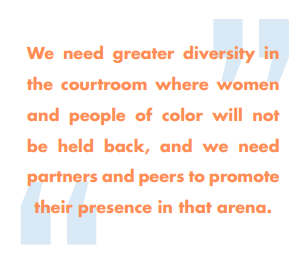 The teaching faculty will include judges and experienced trial lawyers. Some of you may already be familiar with NITA. Jim Brosnahan is one of its founders. I have been running these training programs natio
The teaching faculty will include judges and experienced trial lawyers. Some of you may already be familiar with NITA. Jim Brosnahan is one of its founders. I have been running these training programs natio
nally and internationally—in Eastern Europe, Asia, the U.K., and most recently in the Caribbean—with the National Center for State Courts over the past four years. These programs work. The best part is that the feedback is based on the performance and so it teaches to the level of the attorney. This is effective whether you are a new lawyer or an experienced one.
The first training program was Friday, February 22, through Saturday, February 23, 2019. The second training program will be held in the summer.
We only ask that the attorneys who take the training course commit to taking on one pro bono case this year. We ask that the law firms commit to supporting and promoting their female attorneys in trial. We already have support from numerous law firms and judges. Let us make a change, surge our Women in Trial, and continue our progress. As Martin Luther King, Jr. said, “Keep it moving.”
Also in our blueprint is the charge to promote judicial independence. Our judicial branch has been marginalized with severe budget cuts and attacks by the executive branch. In December, Chief Justice Tani Cantil-Sakauye sounded the alarm, stating that “the people uttering the attacks on the judiciary are doing damage, short-term and long-term, to courts, to the rule of law.” She called for our resolve, stating “We as a branch (of government) need to defend our own. The best way to do that is to promote civics education and invite the public into our courtrooms.”
BASF and JDC will answer the call through civics education programs, including our existing School-to-College, Law Academy, Mock Trial, Lawyers in Schools, Day in Court, and Destination Law School programs. We will redouble our efforts to support the chief justice and our sitting judges by reinforcing the rule of law and the importance of an independent judiciary in all of our messaging. Keep it moving.
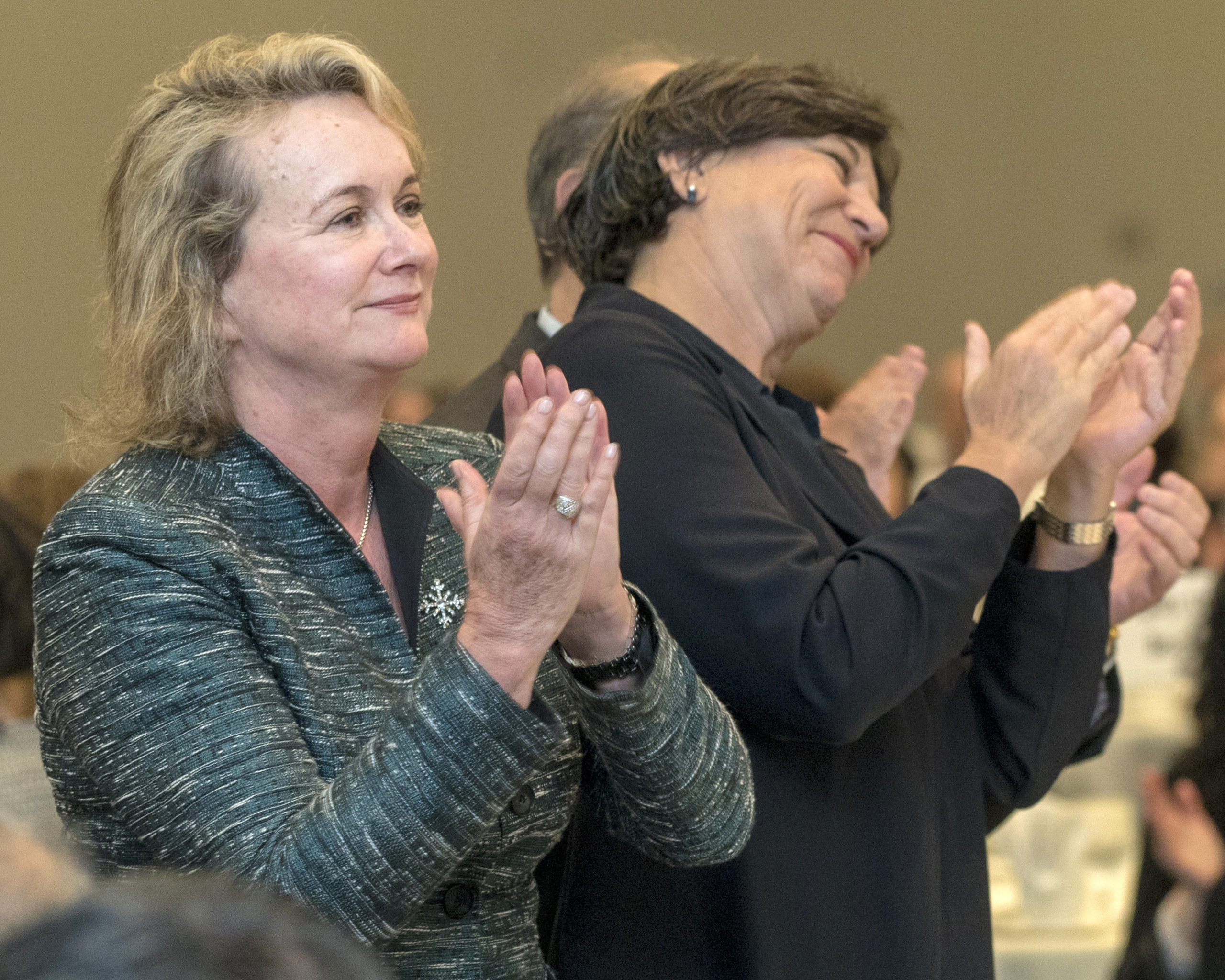
I’ll close with some thoughts from great scientists about progress. Stephen Hawking said, “Our understanding doesn’t advance just by slow and steady building on previous work. Sometimes as with Copernicus and Einstein, we have to make the intellectual leap to a new world picture.” Where Sir Isaac Newton said, “If I have seen farther, it is by standing on the shoulders of giants,” Hawking suggested that we use the shoulders of giants as a springboard.
As your 106th president, I stand on the shoulders of giants—on the shoulders of our past presidents, as well as our executive directors, current Executive Director Yolanda Jackson and former Executive Director Drucilla Ramey.
I ask our existing, new, and yet-to-be members of the Bar Association of San Francisco and volunteers with the Justice & Diversity Center: Stand with me and let us leap off their shoulders to a new picture in 2019.
About the author:
Doris Cheng is a partner with the law firm of Walkup, Melodia, Kelly & Schoenberger. She specializes in catastrophic injury cases arising out of product liability, premises liability, vehicular negligence, medical negligence, governmental liability, and civil rights violations. She is a member of the American Board of Trial Advocates, American College of Trial Lawyers, and International Academy of Trial Lawyers.


